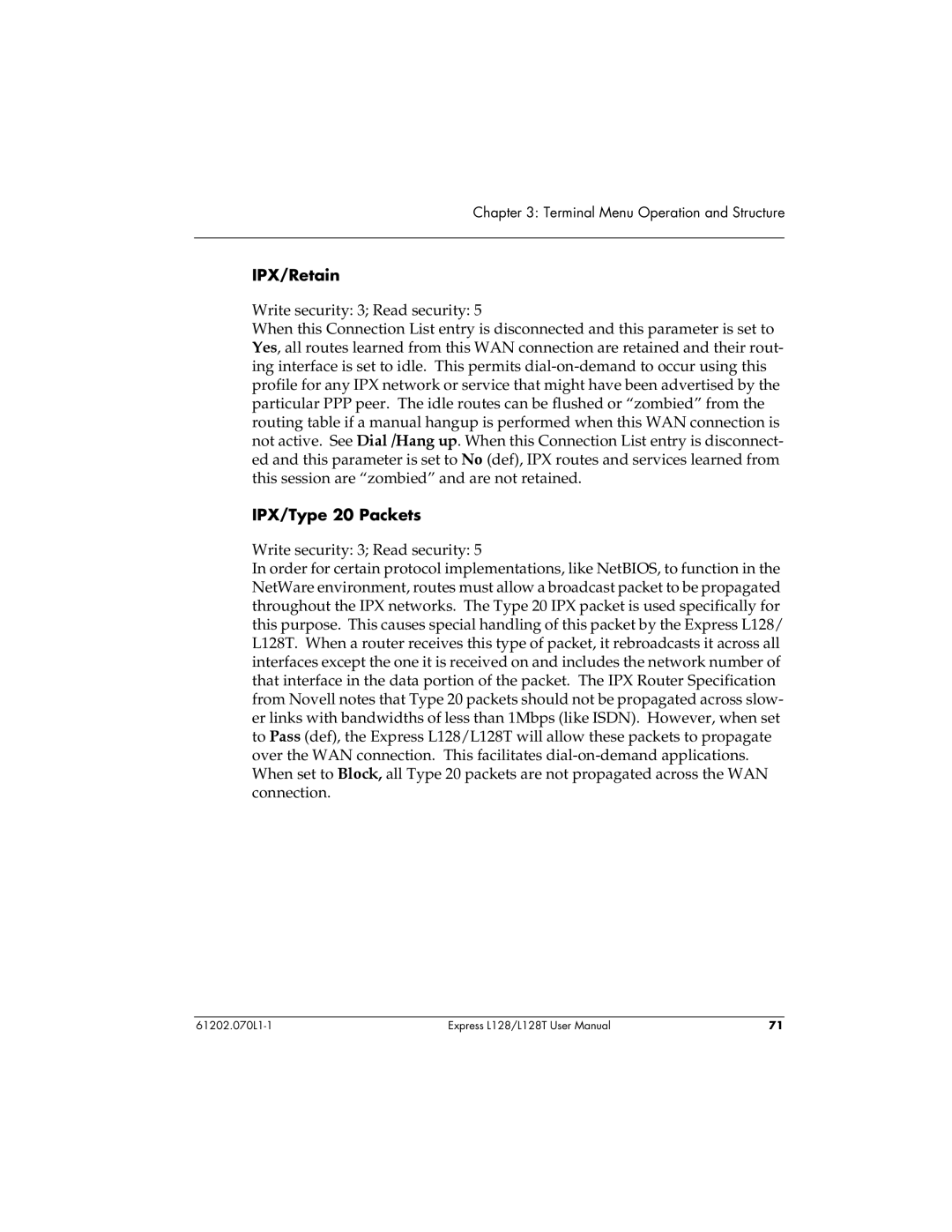
Chapter 3: Terminal Menu Operation and Structure
IPX/Retain
Write security: 3; Read security: 5
When this Connection List entry is disconnected and this parameter is set to Yes, all routes learned from this WAN connection are retained and their rout- ing interface is set to idle. This permits
IPX/Type 20 Packets
Write security: 3; Read security: 5
In order for certain protocol implementations, like NetBIOS, to function in the NetWare environment, routes must allow a broadcast packet to be propagated throughout the IPX networks. The Type 20 IPX packet is used specifically for this purpose. This causes special handling of this packet by the Express L128/ L128T. When a router receives this type of packet, it rebroadcasts it across all interfaces except the one it is received on and includes the network number of that interface in the data portion of the packet. The IPX Router Specification from Novell notes that Type 20 packets should not be propagated across slow- er links with bandwidths of less than 1Mbps (like ISDN). However, when set to Pass (def), the Express L128/L128T will allow these packets to propagate over the WAN connection. This facilitates
Express L128/L128T User Manual | 71 |
